Today’s young online political spaces are vastly different from the shitposting antics of a few years earlier. As the influence of these communities has spilled over into the real world, memers have become more politicized, better educated and with fewer traces of irony. Those who were “just here for the lulz” have long since called it quits. In the last few years, a generation of young people have become radicalized on social media. Some of them are interviewed in the latter portion of this series.
Gen Z finds itself on the other side of Fukuyama’s so-called “end of history”, the widely held belief that western liberal democracy is the end-point of mankind’s ideological evolution and the final form of human government. In recent years, establishment politics have become increasingly brittle while previously fringe ideas have reentered the mainstream. Faced with the brunt of an imminent social, economic and climate crisis, downwardly mobile young people now gather in online spaces to workshop some vision of a path forward. Today it feels nearly impossible to imagine a better world. Not surprisingly, these Gen Z speculations on the future come out rather grim and far to the left, right, up, down and sideways. To resolve our current crisis there will necessarily be a vast expansion of the Overton window and these online spaces will undoubtedly play a part in it.
Choose Your Character
In their early stages, young online political spaces produced an outpouring of e-deologies, radical politics as a form of niche personal branding; Monarcho-Syndicalism, Minarcho-Strasserism, MaoPrim, Homo-Nationalism, Crypto-Deleuzoid Anarchic- Transhumanism with Chinese Characteristics and many other similarly absurd labels. This combinatory process pairs prefixes and suffixes to create seemingly incoherent belief systems. Mostly, its a way to set yourself apart from the crowd. For a predominantly young, white and male audience this was a gameified form of identity play that gained heightened relevance as American politics subsumed all of popular culture.
The Political Compass is an online survey which asks a series of multiple choice questions and spits out a result telling you your political orientation. Its basically a Harry Potter character quiz for political extremists. Instead of, “are you a Hufflypuff or a Griffin-something?”, it asks, “are you an Ancap or a Tankie?”. In 2016, this “choose your character” approach fit well for a young audience. The XY grid offered a greater resolution of identity than the boring binary of a two party system.
As these communities developed, various additions were made to the political compass, sometimes expanding its frame or adding an additional axis:
Around 2017, 8 Values, a four axis quiz, become the new standard. In 2018, Politiscales, an eight axis quiz with various single issue “achievement badges”, rapidly grew in popularity. As political quizzes matured, increasing in niche and detail, they soon became too complex to catch on at the earlier viral scale. At any rate, these spaces had already shed their ironic veneer, so the efficacy of a political personality quiz became less useful. The game had already become real life.
Choose Your Future
In 2019, the original XY quadrant made a return in what was then referred to as the “accelerationist political compass”. Within a few weeks a 16 grid version began to circulate and has since produced so many iterations it would be impossible to track down all of them. Similar scenario planning diagrams are used by tech corporations and the military-industrial complex to plan for unexpected results. The Rand Corporation calls this “threat modeling”. Insurance companies call it “risk assessment”.
Many of these projected futures contain counter-intuitive terms, like “Fully Automated Luxury Ruralism” or “Promethean Christian Socialist Reset”. While these absurd labels are certainly part of the humor, I also began to think of these pairings as a form of permutation and potentially as a way of hedging risk. If you live in uncertain times, you probably want to prepare yourself for the worst. The more terms jammed together, the greater the chance that some part of it might just be right. Perhaps the early e-deologies were not as silly as they first appeared. Maybe they were a rough attempt to calculate the vast spread of possibilities for what comes after the “end of history”.
Young people are mining political theory and using meme formats to sandbox a new kind of politics. In an era where most mainstream proposals seem insufficient to scale to the task ahead of us, this process of combinatory pairings is a way to prototype visions of the future. Eventually, this process generates something close enough to real world politics that it can gain traction and build an IRL movement.



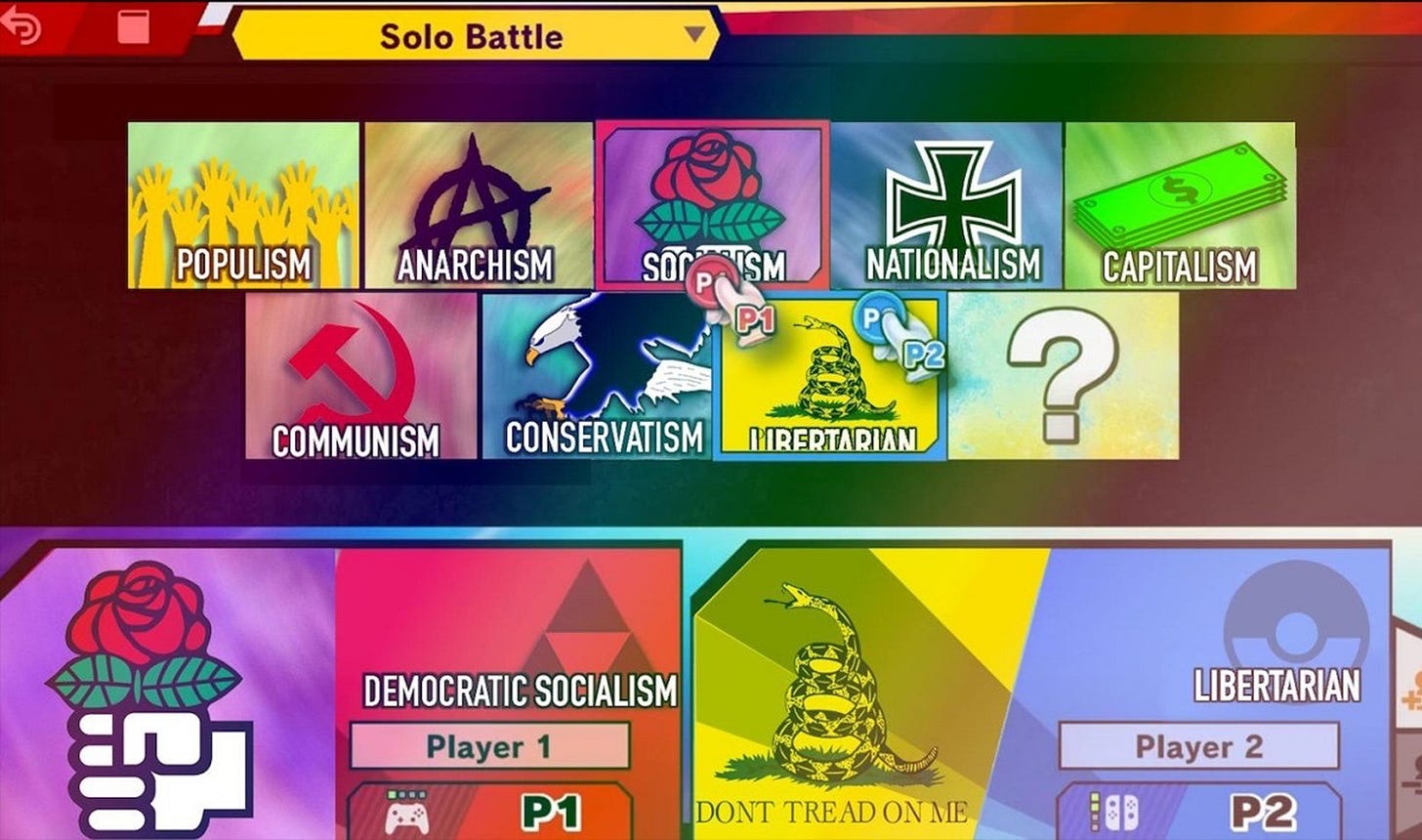

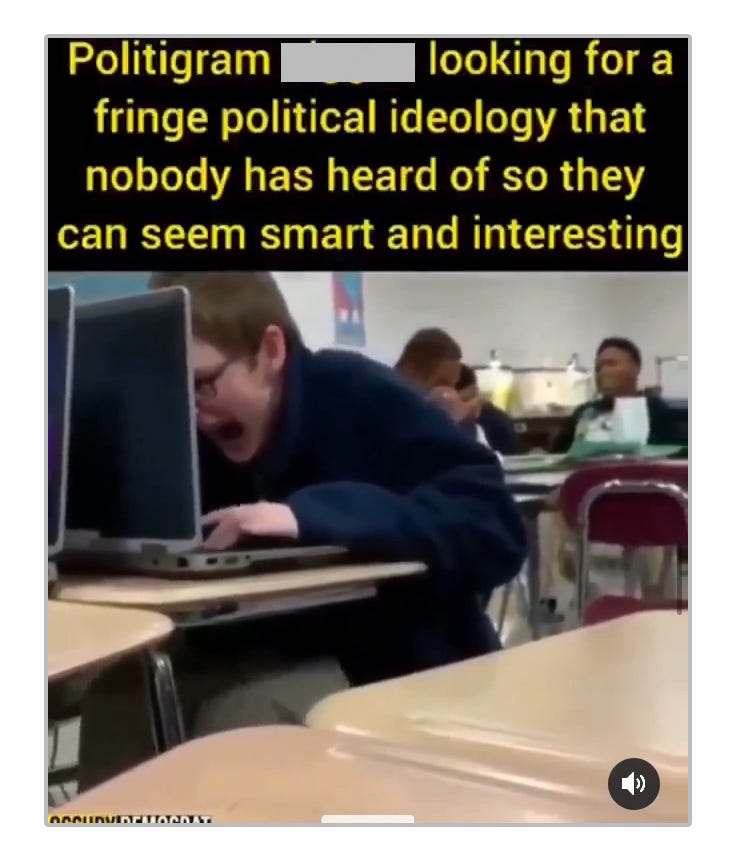

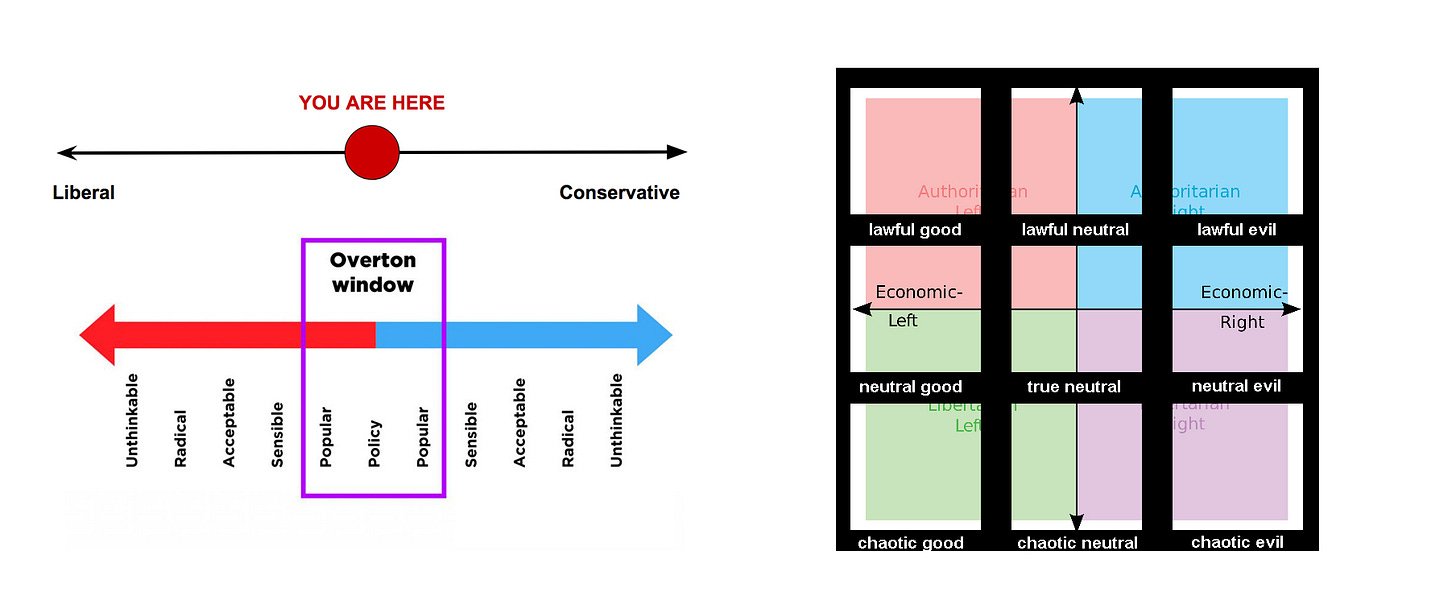
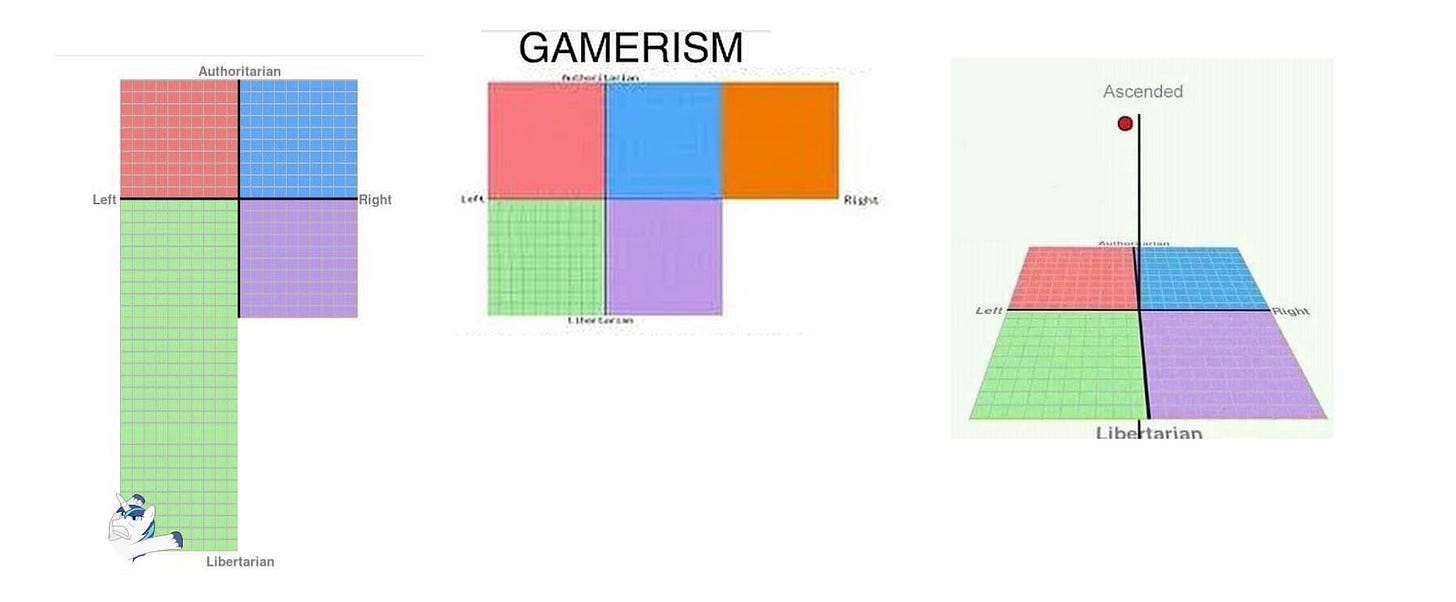
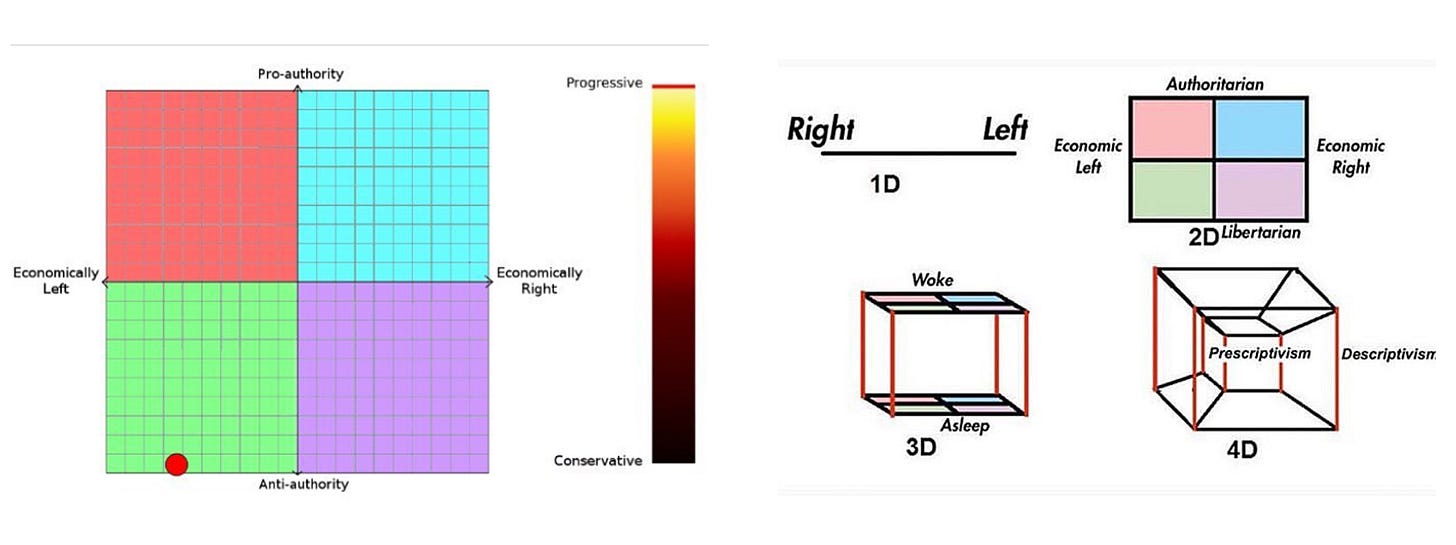

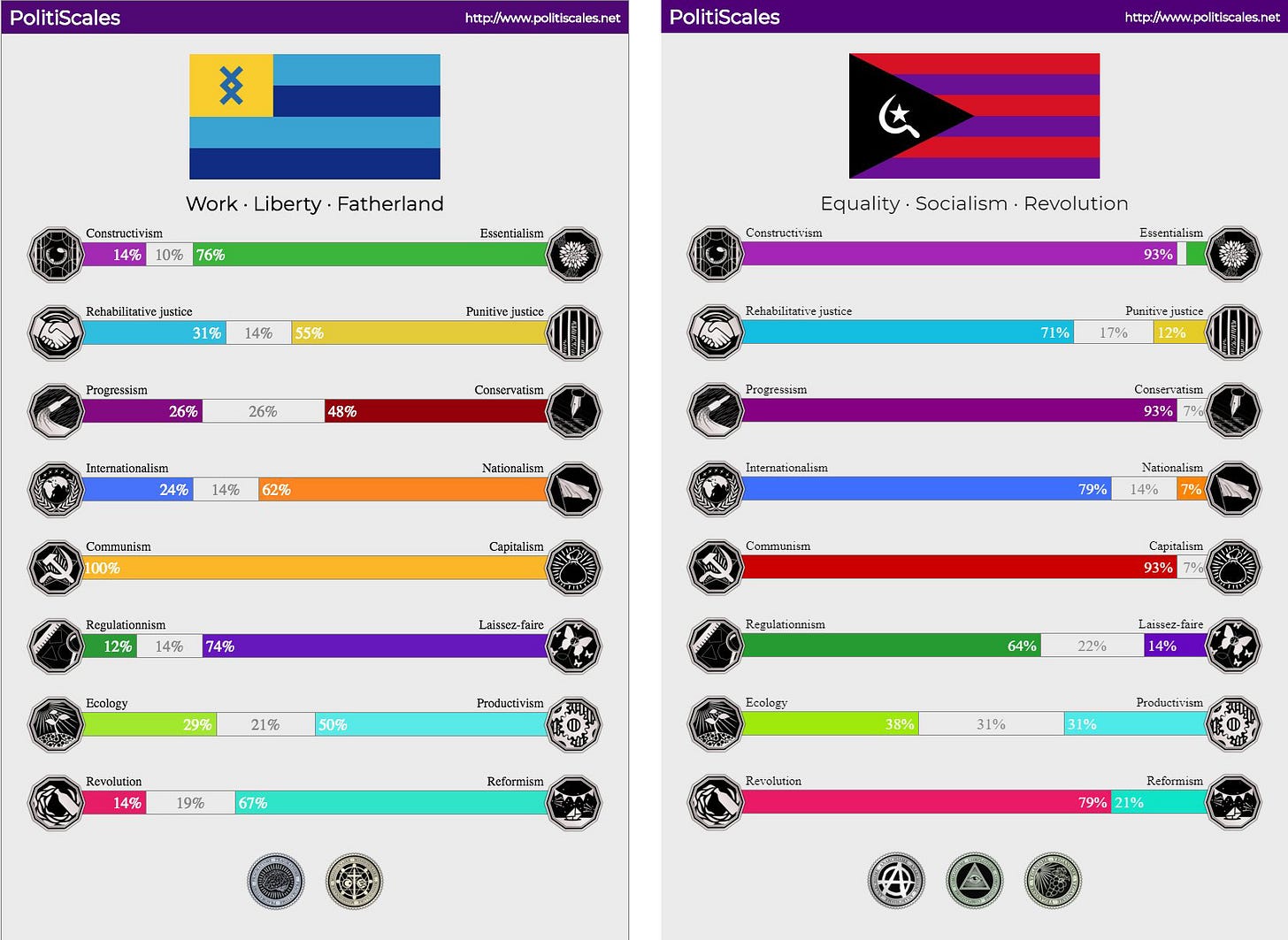

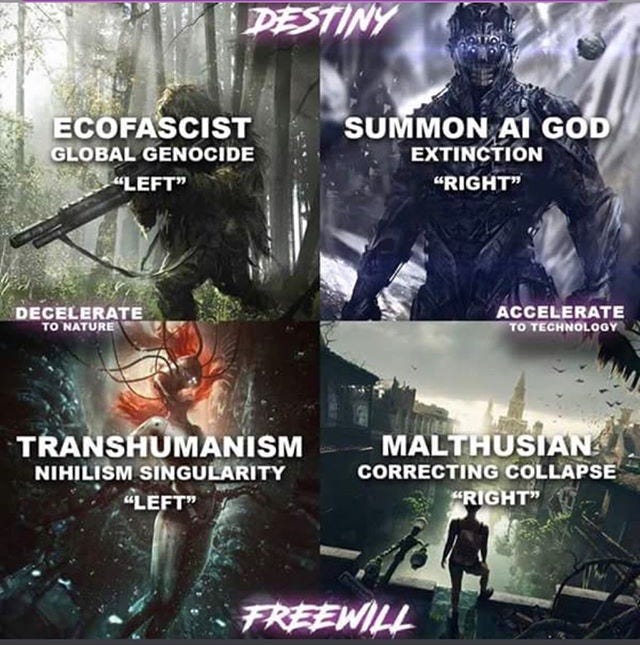
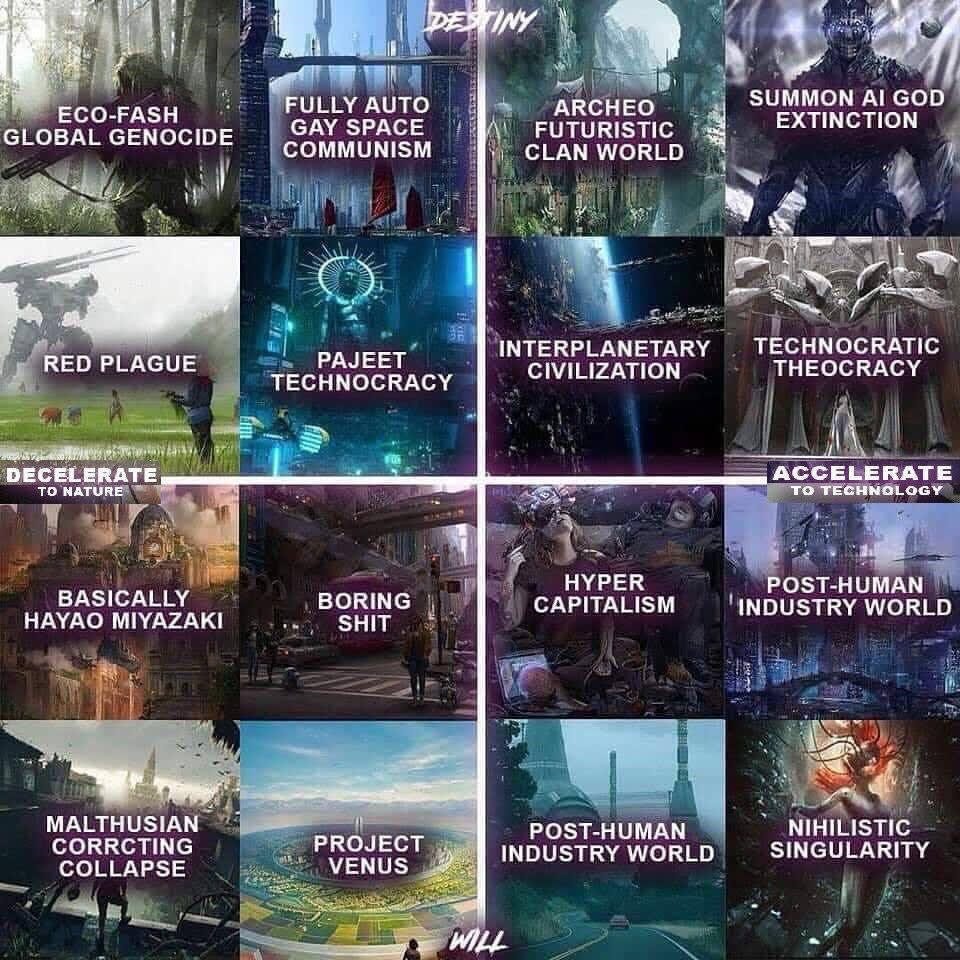
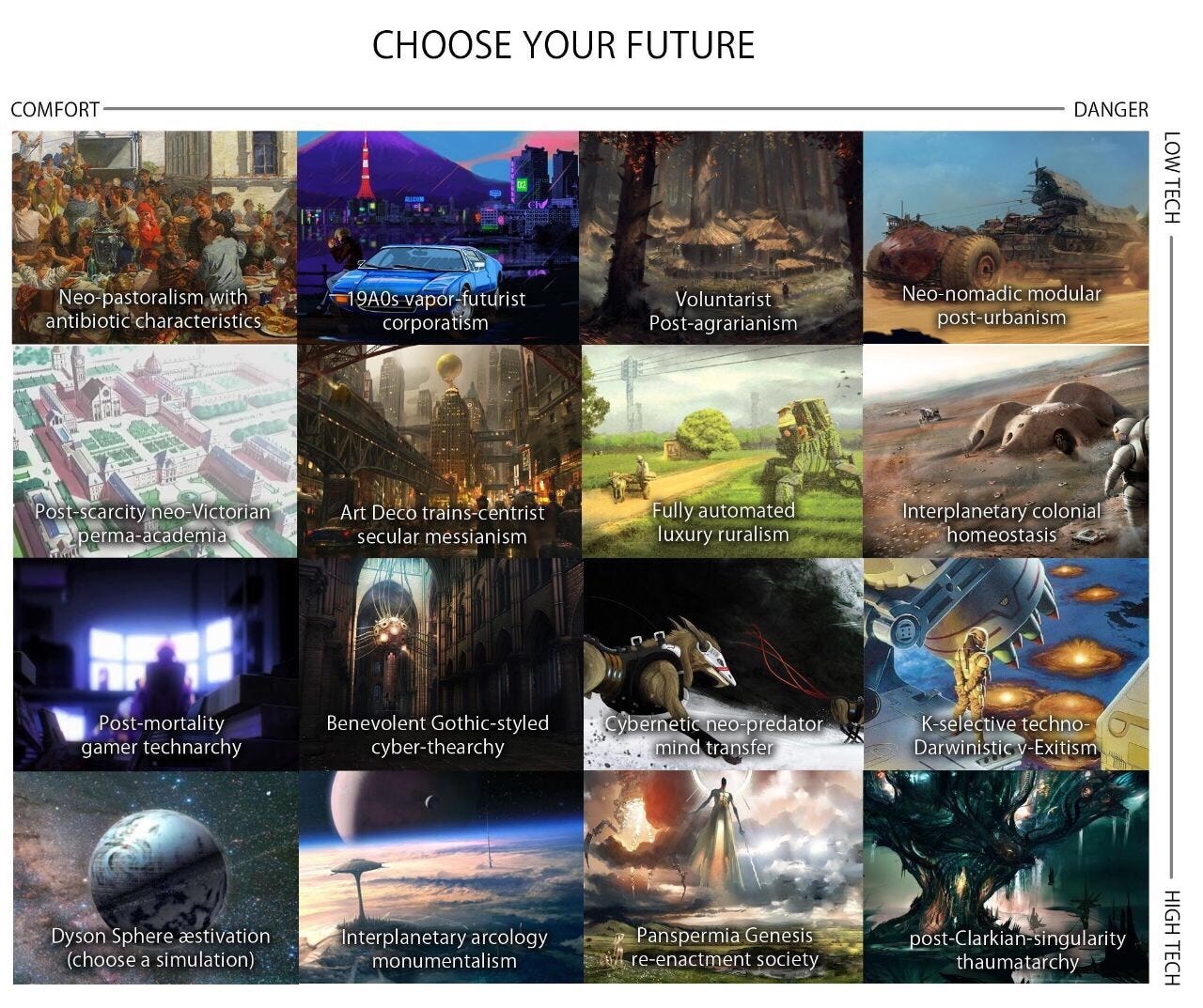
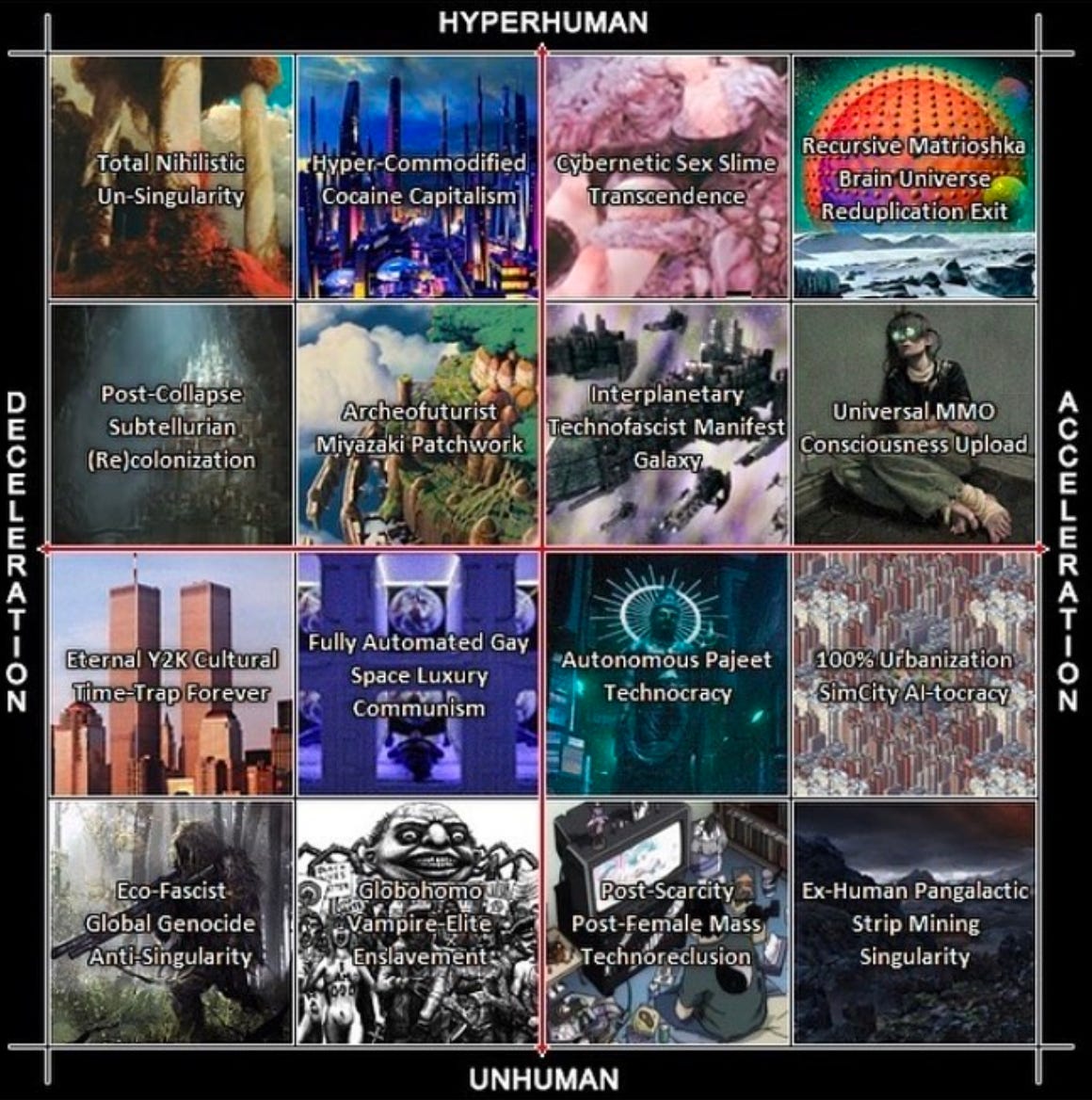

an all-time favorite political compass meme:
https://knowyourmeme.com/photos/2434097-political-compass
original at: https://www.reddit.com/r/PoliticalCompassMemes/comments/x6otv0/this_year_ive_spent_four_nonconsecutive_weeks_in/